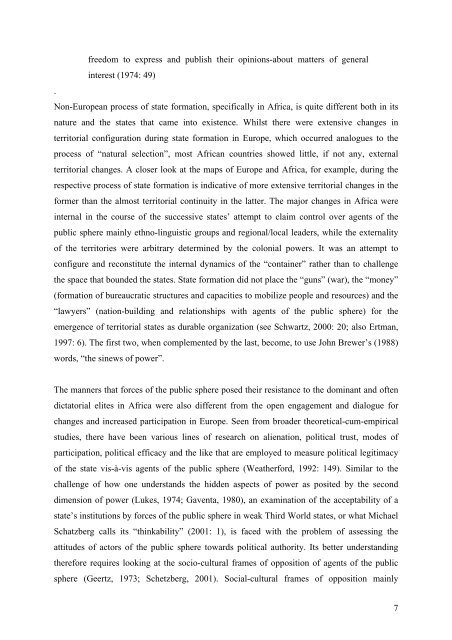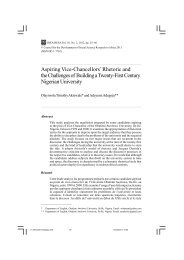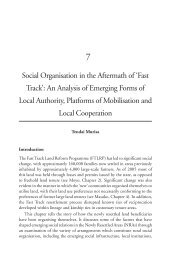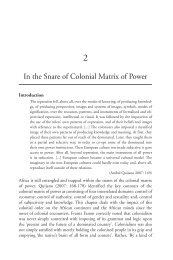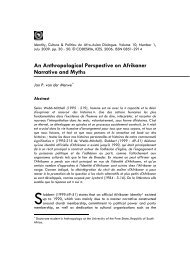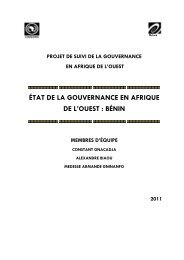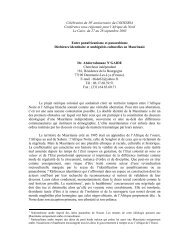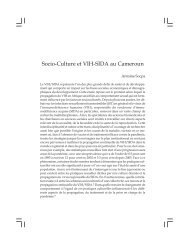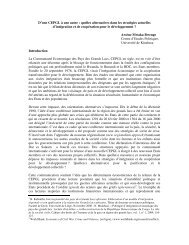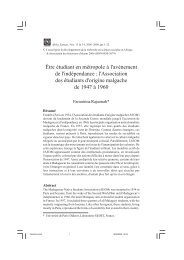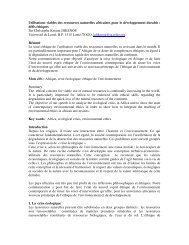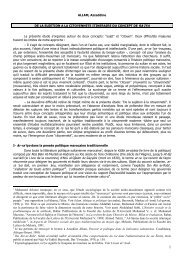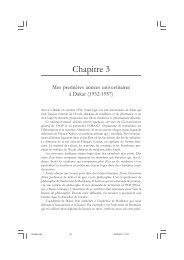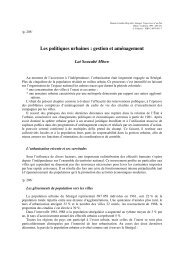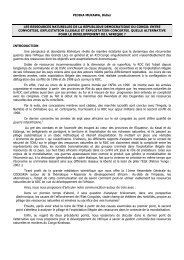Zenebe BASHAW - codesria
Zenebe BASHAW - codesria
Zenebe BASHAW - codesria
Create successful ePaper yourself
Turn your PDF publications into a flip-book with our unique Google optimized e-Paper software.
freedom to express and publish their opinions-about matters of general<br />
interest (1974: 49)<br />
.<br />
Non-European process of state formation, specifically in Africa, is quite different both in its<br />
nature and the states that came into existence. Whilst there were extensive changes in<br />
territorial configuration during state formation in Europe, which occurred analogues to the<br />
process of “natural selection”, most African countries showed little, if not any, external<br />
territorial changes. A closer look at the maps of Europe and Africa, for example, during the<br />
respective process of state formation is indicative of more extensive territorial changes in the<br />
former than the almost territorial continuity in the latter. The major changes in Africa were<br />
internal in the course of the successive states’ attempt to claim control over agents of the<br />
public sphere mainly ethno-linguistic groups and regional/local leaders, while the externality<br />
of the territories were arbitrary determined by the colonial powers. It was an attempt to<br />
configure and reconstitute the internal dynamics of the “container” rather than to challenge<br />
the space that bounded the states. State formation did not place the “guns” (war), the “money”<br />
(formation of bureaucratic structures and capacities to mobilize people and resources) and the<br />
“lawyers” (nation-building and relationships with agents of the public sphere) for the<br />
emergence of territorial states as durable organization (see Schwartz, 2000: 20; also Ertman,<br />
1997: 6). The first two, when complemented by the last, become, to use John Brewer’s (1988)<br />
words, “the sinews of power”.<br />
The manners that forces of the public sphere posed their resistance to the dominant and often<br />
dictatorial elites in Africa were also different from the open engagement and dialogue for<br />
changes and increased participation in Europe. Seen from broader theoretical-cum-empirical<br />
studies, there have been various lines of research on alienation, political trust, modes of<br />
participation, political efficacy and the like that are employed to measure political legitimacy<br />
of the state vis-à-vis agents of the public sphere (Weatherford, 1992: 149). Similar to the<br />
challenge of how one understands the hidden aspects of power as posited by the second<br />
dimension of power (Lukes, 1974; Gaventa, 1980), an examination of the acceptability of a<br />
state’s institutions by forces of the public sphere in weak Third World states, or what Michael<br />
Schatzberg calls its “thinkability” (2001: 1), is faced with the problem of assessing the<br />
attitudes of actors of the public sphere towards political authority. Its better understanding<br />
therefore requires looking at the socio-cultural frames of opposition of agents of the public<br />
sphere (Geertz, 1973; Schetzberg, 2001). Social-cultural frames of opposition mainly<br />
7


